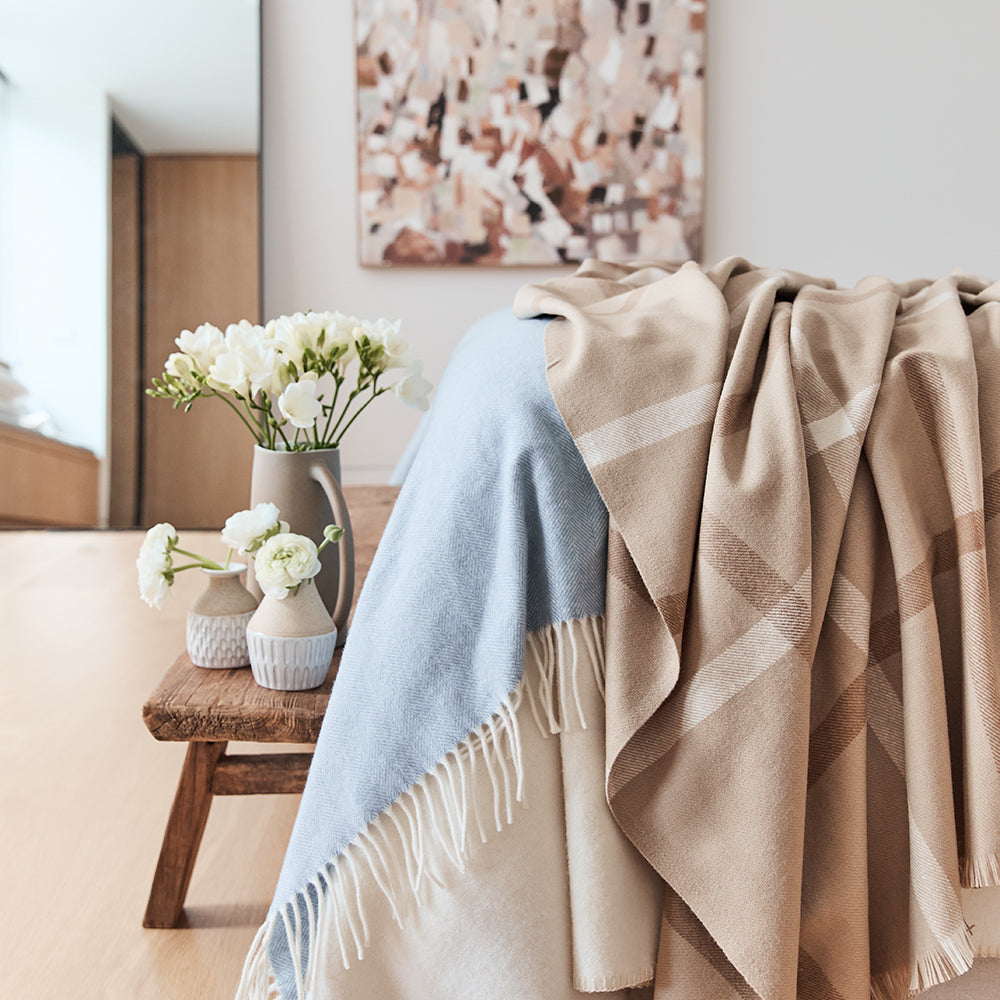At Waverley Mills, we can be proud of our history of sustainable production.
As an example, the Mill produced ‘Welfare Blankets’ for St Vincent De Paul for over two decades. Designed to be given to the homeless as a means to keep warm whilst sleeping rough, the Welfare Blanket was woven from offcuts from Mill production. This recycled product combines practical functionality and sustainable production methods, vastly reducing (and at times eliminating) waste.
Flash forward to 2016 and Waverley Mills launched its debut collection, The Recycled Range, a modern take on the Welfare Blanket. Teaming up with highly regarded Sydney design duo bernabeifreeman, we have created a Recycled Range which shows off the very essence of the recycled yarn, celebrating its raw and natural beauty whilst adding a modern twist, with clean cut, bold design by bernabeifreeman.
How do we do this? The scale of the positive sustainable impact is best understood through the process of incorporating offcuts from all production at the Mill into recycled yarn.
Offcuts → Recycled Yarn
Offcuts are put into the Ragging machine, which mixes them together.

The Blending machine further breaks down the fibres. Oil is added so that the fibres run smoothly in the Carding machine.

The broken up fibres are then put into the Carding machine, where they are formed into a web-like structure, then twisted into yarn.

Finally, the Spinning Frame twists the yarn into the appropriate thickness. For the recycled yarn, this is 215 tex (linear mass density of fibres).

Amazingly, out of the total fibre used in production at the Mill, only 0.05% of all fibres are unable to be reincorporated back into the production process!
In addition to our sustainable production methods, all our merino wool is sourced locally from farms in Tasmania. Kananga Grazing (near Scottsdale) is one such farm, run by Roger Bignell, who has been a long-term supplier to the Mill. Likewise, our throws are made locally, right here in Tasmania, by locals.
We value the positive impact sourcing and making locally has on both the community and the environment, reducing our carbon footprint as a business. Waverley uses no harmful chemicals or production methods, relying instead on a simple gentle cleaning process to remove vegetable matter from our wool.



